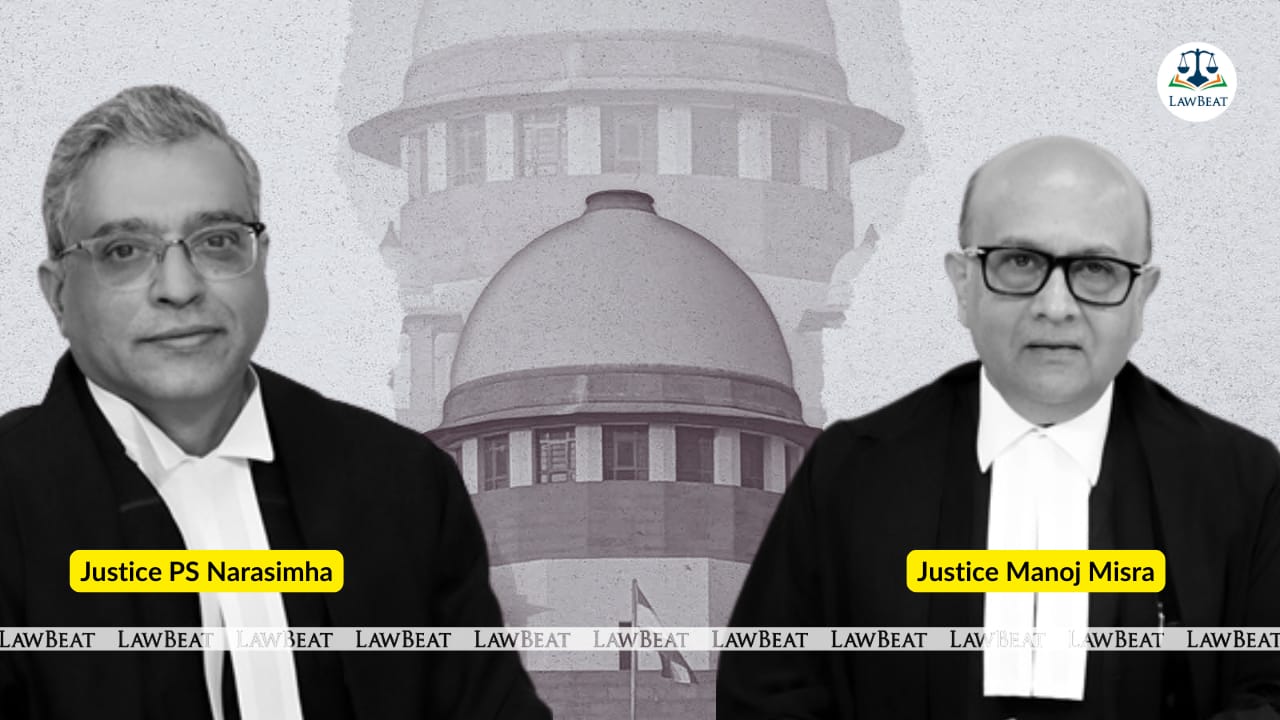Judicial restraint is statutory obligation in arbitral proceedings: SC

Court noted that the High Court did not bother to indicate under what circumstances the order passed by the Tribunal was perverse
The Supreme Court on January 3, 2025, underscored the principle of judicial restraint in interfering with the proceedings before the arbitral tribunal, as it set aside the High Court's order directing one more opportunity to cross-examine a witness.
A bench of Justices P S Narasimha and Manoj Misra stated that the first principle that governs the ‘conduct of arbitral proceedings’ under Chapter V of the Act is the obligation of equal treatment of parties.
The court pointed out that under Section 18 of the Arbitration and Conciliation Act, it is the statutory duty of the Arbitral Tribunal to ensure that the parties are treated with equality and that each party is given full opportunity to present its case.
"At the same time, there is yet another statutory obligation, which is imposed on the judicial authorities. That is the statutory incorporation of judicial restraint in interfering with matters governed under Part I of the Act relating to arbitration agreement, composition and jurisdiction of Arbitral Tribunal, coupled with the conduct of the proceedings and making, challenge and enforcement of the award. This objection of restraint on the judicial authority is overriding and notwithstanding anything contained in any other law for the time being in force," the bench said.
The appellant, Serosoft Solutions Pvt Ltd, and the respondent, Dexter Capital Advisors Pvt Ltd, were parties in a pending arbitration. The question for consideration was whether the High Court had correctly exercised its supervisory jurisdiction under Article 227 of the Constitution in granting the respondent/claimant one more opportunity to cross-examine the appellant/respondent’s witness, despite the Arbitral Tribunal rejecting such a prayer.
Having looked into the matter, the bench noted that the Arbitral Tribunal had seemed to have given full opportunity to all parties, which was amply evident from the record.
On the other hand, the unrestrained cross-examination of RW-1 by the respondent/claimant had already exceeded 12 hours, but the respondent/claimant did not seem to be satisfied with it, the court noted.
"In any event of the matter when the Arbitral Tribunal by its order dated 09.10.2024 held - ‘that far and no further’, to the respondent/claimant’s endeavour to cross-examine RW-1, the High Court should have restrained itself from interfering," the bench said.
The court also looked into the other parts to see if the High Court had in fact found any perversity in the decision of the Tribunal.
"We found none. The High Court has not bothered to indicate under what circumstances the order passed by the Tribunal is perverse. All that the High Court has said is that cross-examination is one of the most valuable and effective means of discovering the truth. This is a normative statement, and nobody disputes the said principle," the bench said.
The court stated that the only enquiry required was whether there was denial of opportunity for an effective cross-examination of the witness.
"There is absolutely no discretion about this aspect of the matter, except to say that in the facts and circumstances of the case and as an exceptional circumstance as well, the request of the respondent/claimant is excessive," the bench said.
Having considered the matter in detail, the court found no justification in the order passed by the High Court in interfering with the directions of the Arbitral Tribunal holding that full and sufficient opportunity to cross-examine RW-1 had already been given and no further extension of time was warranted.
The court, while setting aside the High Court's order, directed the Arbitral Tribunal to resume and conclude the proceedings as expeditiously as possible.
Case Title: Serosoft Solutions Pvt Ltd Vs Dexter Capital Advisors Pvt Ltd
